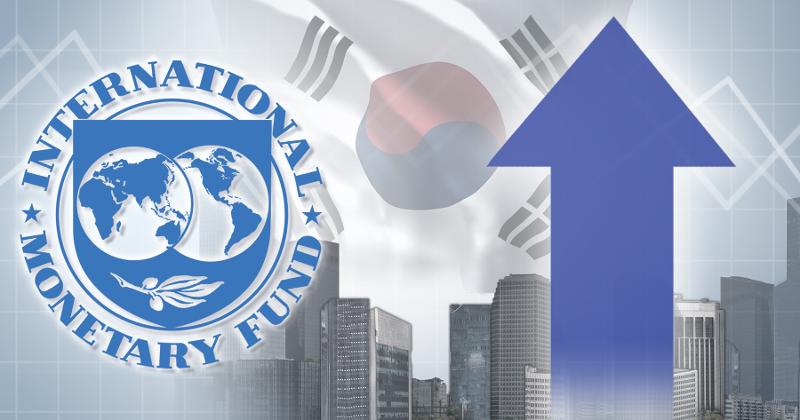-
 Korea.net's 24-hour YouTube channel
Korea.net's 24-hour YouTube channel- NEWS FOCUS
- ABOUT KOREA
- EVENTS
- RESOURCES
- GOVERNMENT
- ABOUT US

The Washington-based International Monetary Fund (IMF) on March 25 raised its economic growth outlook for Korea this year to 3.6%. (Yonhap News)
By Lee Hana
The International Monetary Fund (IMF) has raised its economic growth outlook for Korea this year to 3.6%, up from its January estimate of 3.1%.
The Ministry of Economy and Finance on March 26 said the IMF issued a report on the results of its annual consultations in January with the ministry, the Financial Services Commission, the Bank of Korea and the Financial Supervisory Service.
"The IMF has raised Korea's growth outlook based on increased exports and investment stemming from the recovery of major economies and the recently proposed supplementary budget," the ministry said.
The fund's forecast of 3.6% is higher than those of the Organisation for Economic Co-operation and Development (3.3%), the Bank of Korea (3.0%) and the Korean government (3.2%).
Commending Korea's effective measures toward COVID-19 containment and comprehensive response through economic policy, the IMF's executive board said that going forward, there is "a need for continued supportive macroeconomic policies to help the economy normalize faster, safeguard financial stability, and foster greener and more inclusive growth."
The board welcomed the proposed supplementary budget, "which would enable a positive fiscal impulse for the current year by raising transfers targeted to affected workers and firms."
The IMF also called Seoul's monetary easing last year "appropriate" and agreed that "monetary policy should remain accommodative," with most considering the central bank's monetary stance as "broadly appropriate given the need to balance macroeconomic conditions and financial stability risks."
It also "welcomed the steps taken to sustain credit flows, especially to small businesses, and agreed that credit support programs should be maintained until the economy recovers more broadly," and "encouraged the authorities to be prepared to tighten prudential policies further in the event of continued rapid household credit growth."
The board said it was encouraged by the strategy of Korean authorities to "develop new growth drivers through the Korean New Deal, which would facilitate a digital, greener, and more inclusive economy," suggesting that they "take complementary steps to boost potential growth by reducing entry barriers, fostering innovation, and tackling labor market rigidities, particularly to support women and youth."
hlee10@korea.kr
Most popular
- First hearing-impaired K-pop act hopes for 'barrier-free world'
- Expats could account for 7% of population in 20 years: report
- 'Mad Max' director impressed by 'cinema-literate' Korean viewers
- Show in Italy to present 'thought-filled' Korean craftworks
- Romanian presidential couple visits national cemetery













